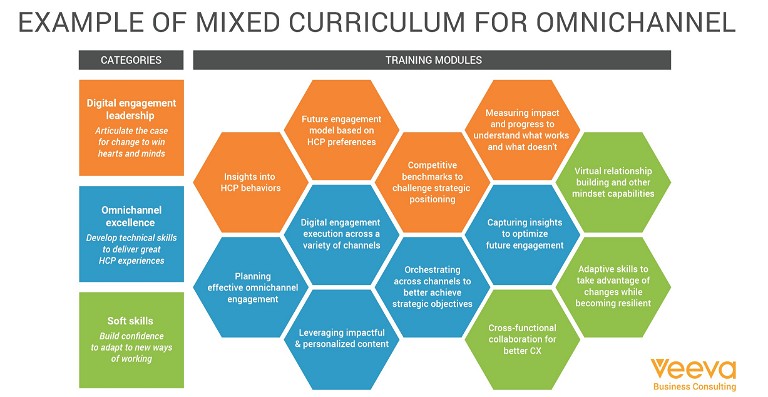Thought Leader
Seven ways to boost HCP engagement through field behavioural change
Veeva talks to Pharmafocus about the best ways that biopharma companies can boost their engagement
The rising importance of digital channels has caught many biopharma companies off guard. Not all field teams have benefited as digital engagement increases its share of the channel mix: Veeva Pulse data shows 65% of accessible healthcare professionals (HCPs) in Europe meet with three or fewer biopharma companies.
Biopharma organisations must provide the right level of practical support for field teams to adapt and succeed in this new environment. Unfortunately, change management and training are often rushed and fail to focus on the behavioural change required to realise value.
To embed new skills and behaviours, leaders should communicate a value proposition that answers learners’ core questions: ‘What’s in it for me?’ and ‘Why now?’ Soft skills are as important (if not more so) than tools and tactics in a training curriculum. Leaders can accommodate different training preferences by deploying diverse ways of learning. Ensuring change is measurable will build confidence and belief in the programme.
1. Start with the ‘why’ When teams understand why omnichannel is important to the business and its impact on HCPs, they are more likely to want to take the ‘right’ action for each customer, rather than defaulting to certain tools. This nurtures the willingness to learn about other highly effective engagement tools (including remote call and email platforms), explore new ways of partnering with customers and capture and use insights.
2. Update and upgrade your training curriculum Training for field teams has historically been anchored around brand promotion and gaining access to HCPs. However, with so many field teams now engaging with HCPs through video calls, emails and events, access has changed significantly. A curriculum for the omnichannel field team needs to reflect the new skills required while being flexible to the different engagement needs of brands and markets. Focus first on foundational approaches and behaviours that should span all parts of the organisation.
3. Personalise the learning journey Training needs to be designed to increase capability, whatever the starting point. Learning paths should reflect every individual’s current capabilities, role needs and learning preferences. This approach helps field teams to identify different maturity levels among the HCPs they target and support them during the transition to desired behaviours. This is particularly important when deploying training to markets with different levels of omnichannel maturity.

4. Varied learning formats to engage the modern learner Flexibility and the ability to learn on the go are musts. Consider delivering bite-sized content, across a range of formats suitable for mobile devices, so that field teams can easily combine and consume content on demand.
5. Align to support the required behaviours Leadership has an important role to play in supporting capability development and avoiding the return of old behaviours. A good example is making sure that the incentives and objectives of field teams are aligned with the new omnichannel behaviours as well as business processes, such as customer targeting and multichannel cycle planning.
6. Lead from the top and continuously reinforce change Foster a sense of community by celebrating key milestones (like programme kick-offs or ‘graduations’) so that learners are rewarded for their achievements. First-line managers play a key role, by coaching field teams, recognising progress and encouraging knowledge exchange. Creating a safe space to ask questions – perhaps within a network of experts or ‘refresher’ training sessions – means learners can test or give examples from their practice.
7. Measure change to show impact on behaviours Transformation programmes tend to be long and complex and need strong governance to track implementation and adoption over time. It’s as important to keep the programme alive as it is to measure the impact on individuals and the whole organisation. This demands a measurement framework that goes beyond the classic implementation metrics and assesses behavioural change (and corresponding value).
Conclusion
Field teams will continue to play a critical role in how biopharma goes to market. However, the nature of what they do and how they do it will have to evolve. Behavioural change and capability building take time, so there is no better time to start this journey – or if you are already on the journey, to reinvigorate and accelerate your approach.
Those that do so will build a competitive advantage through better-quality customer engagement. With the amount of money invested in field teams, it’s too important to leave it to chance.
Contact Veeva Business Consulting to improve how your organisation engages with customers.

Victoria Serra Gittermann is principal and team lead at Veeva Business Consulting.
victoria.serra.g@veeva.com

Edward Atkinson-Clark is engagement manager at Veeva Business Consulting.
edward.atkinsonclark@veeva.com
